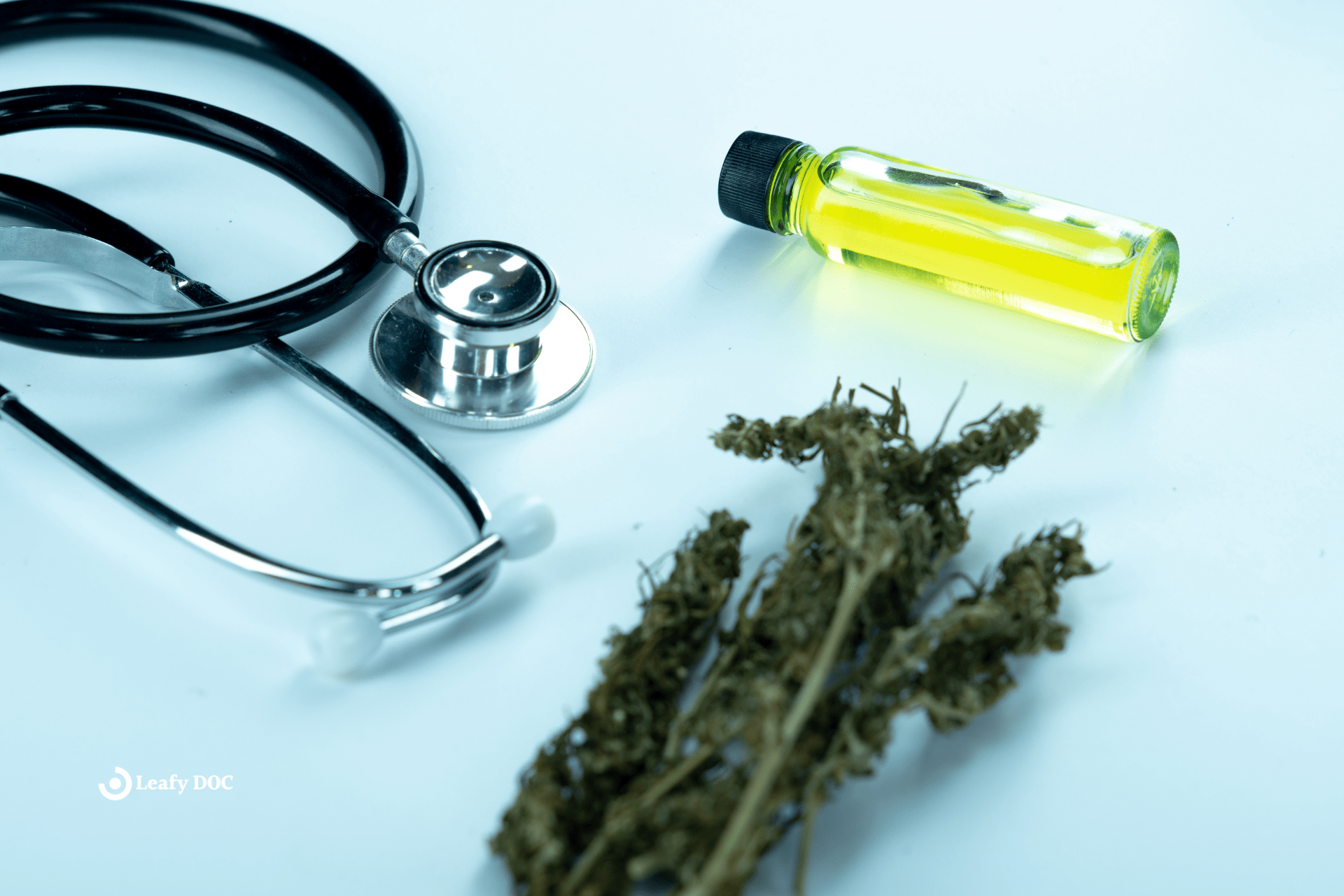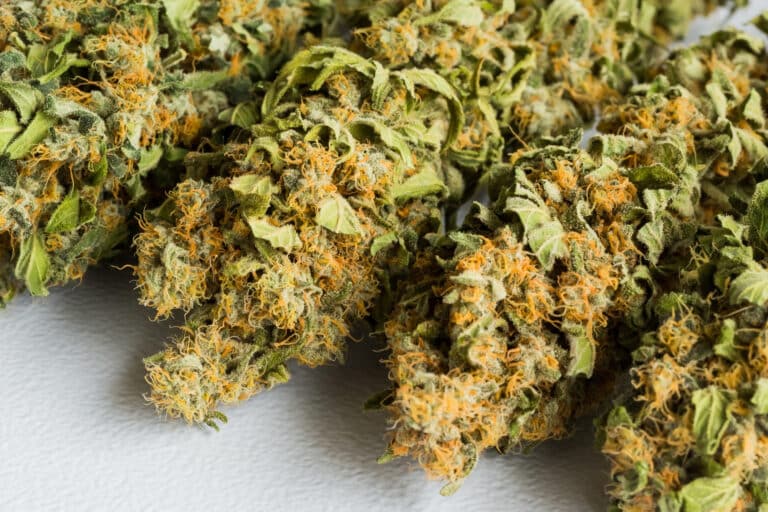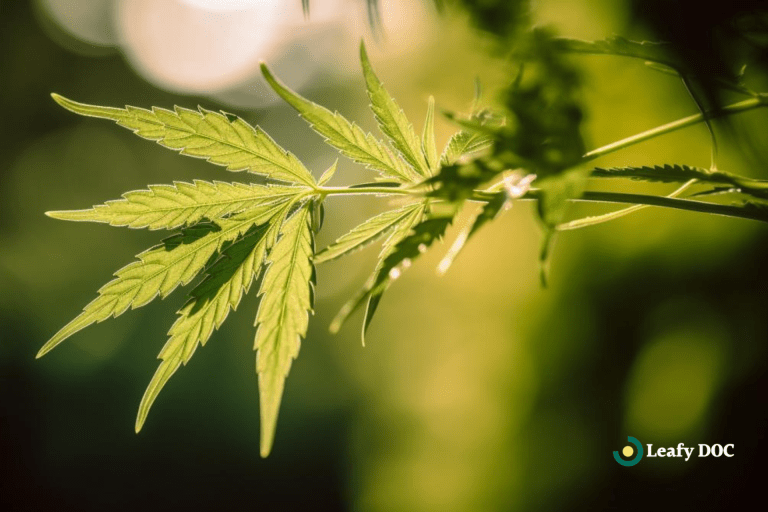Medical Marijuana and Addiction: Fact vs. Fiction
by Haley Mills · June 15, 2023
Explore the relationship between medical marijuana and addiction and separate fact from fiction. Learn about the potential benefits and drawbacks of using cannabis for addiction treatment.

Navigating the complex world of medical marijuana and addiction can be challenging, with myths and misconceptions often clouding the truth. In our article, we aim to illuminate the realities of this controversial topic.
By demystifying common beliefs and addressing the science behind medical cannabis, we hope to provide readers with a comprehensive understanding of the relationship between medical marijuana and addiction, empowering informed decision-making. Join us as we embark on an enlightening journey to separate fact from fiction in the realm of medical marijuana and addiction.
Researching Medical Marijuana Dependence
Study 1: Effect of Medical Marijuana Card Ownership on Pain, Insomnia, and Affective Disorder Symptoms in Adults – A Randomized Clinical Trial (March 2022) Conducted by Jodi M. Gilman, PhD1,2,3; Randi M. Schuster, PhD1,2; Kevin W. Potter, PhD1,2
This randomized clinical trial investigated the impact of medical marijuana card ownership on symptoms of pain, insomnia, and affective disorders in adults. The study highlighted the potential therapeutic benefits of medical marijuana for specific conditions while also exploring the potential risks associated with its use.
Key findings from the study include:
- Medical marijuana cardholders improved pain and sleep quality compared to the control group.
- Affective disorder symptoms remained stable, with no significant differences observed between the medical marijuana cardholders and the control group.
- However, the study also noted increased marijuana use frequency and cannabis use disorder symptoms among medical marijuana cardholders.
Study 2: Cannabis Use Disorder (July 11, 2022) Authored by Jason Patel and Raman Marwaha
This comprehensive review explored Cannabis Use Disorder (CUD), focusing on its prevalence, diagnostic criteria, and treatment options. The authors emphasized the importance of understanding CUD, especially in the context of the increasing use of medical marijuana.
Some essential takeaways from the study include:
- CUD is characterized by a problematic pattern of cannabis use, leading to significant impairment or distress in daily life.
- The prevalence of CUD has risen in recent years, partly due to increased marijuana accessibility and changing perceptions of its risks.
- Early intervention and evidence-based treatments, such as cognitive-behavioral and motivational enhancement therapy, are crucial in effectively addressing CUD.
While medical marijuana has shown promise in treating specific symptoms such as pain and insomnia, it is essential to remain vigilant about the potential risks associated with its use. Further research is needed to understand the complex relationship between medical marijuana and dependence, ensuring that patients and healthcare providers make informed decisions about its use and any physical or psychological problems to be aware of.
FAQs- MMJ and Addiction
Here, we’ll tackle the most commonly asked questions regarding cannabis use and the development of substance use disorders.
How do natural cannabis and synthetic cannabinoids vary?
Natural cannabis refers to the plant Cannabis sativa, which contains numerous naturally occurring cannabinoids, the most well-known being delta-9-tetrahydrocannabinol (THC) and cannabidiol (CBD). These compounds interact with the human endocannabinoid system, producing various physical and psychological effects.
Synthetic cannabinoids, conversely, are chemically engineered compounds designed to mimic the effects of natural cannabinoids from the cannabis plant. They are often more potent and can bind more strongly to cannabinoid receptors in the brain. This increased potency can result in more intense and unpredictable effects, leading to a higher risk of adverse reactions, such as severe anxiety, paranoia, and organ damage.
What are the benefits of medical marijuana?
Medical marijuana has been found to offer several therapeutic benefits for a range of conditions, including:
- Chronic pain management: Medical marijuana has been shown to relieve various types of chronic pain, including neuropathic pain and pain associated with multiple sclerosis or arthritis.
- Reduction of spasticity: Patients with multiple sclerosis or spinal cord injuries may experience decreased muscle spasms and stiffness when using medical marijuana.
- Nausea and vomiting control: Medical marijuana has effectively reduced chemotherapy-induced nausea and vomiting for cancer patients.
- Appetite stimulation: Medical marijuana can help stimulate appetite in patients with HIV/AIDS or those undergoing cancer treatments, aiding in weight gain and improved nutrition.
- Sleep improvement: Patients suffering from insomnia or other sleep disorders may find relief with medical marijuana use.
- Seizure control: Some forms of epilepsy, particularly Dravet syndrome and Lennox-Gastaut syndrome, have shown a positive response to CBD-based treatments, reducing the frequency and severity of seizures.
What are the instant effects of medical marijuana use?
The immediate effects of medical marijuana use can vary depending on the individual, the method of consumption, and the specific strain or formulation used. Some common instant effects may include:
- Euphoria or a sense of relaxation
- Altered perception of time
- Increased appetite
- Heightened sensory experiences, such as increased sensitivity to sounds, tastes, and smells
- Dry mouth
- Red eyes
- Short-term memory impairment
- Impaired coordination or motor skills
These effects may vary significantly between individuals and may be influenced by dosage, tolerance, and the ratio of THC to CBD in the marijuana product.
Are there adverse consequences to using MMJ?
While medical marijuana has shown therapeutic benefits for various conditions, there can be adverse consequences associated with its use, including:
- Short-term effects: Impaired memory, motor skills, and coordination, which can increase the risk of accidents or injuries.
- Long-term effects: Chronic use may lead to respiratory issues, cognitive impairment, or mental health problems, such as anxiety, depression, or increased risk of psychosis in predisposed individuals.
- Dependency and addiction: Regular use of medical marijuana can lead to the development of marijuana or cannabis use disorder (CUD).
- Drug interactions: Medical marijuana may interact with other medications, potentially causing adverse effects or reducing the efficacy of the medications.
- Legal issues: While medical marijuana is legal in many states, it remains illegal at the federal level, which may result in legal consequences depending on the jurisdiction.
Can weed trigger substance abuse?
Although not everyone who uses marijuana will develop substance abuse issues, research has shown that early and frequent use of marijuana can increase the risk of developing substance abuse problems, including the misuse of alcohol, prescription medications, or illicit drugs. This phenomenon is sometimes referred to as the “gateway drug” hypothesis. However, it is essential to recognize that many factors, including genetics, environment, and individual susceptibility, contribute to the development of substance abuse.
How do people develop marijuana use disorder?
Marijuana use disorder (MUD) or cannabis use disorder (CUD) develops when a person’s brain adapts to regular marijuana use by reducing the sensitivity of its cannabinoid receptors. As the brain becomes less responsive to marijuana, users may require higher doses to achieve the desired effects, leading to increased tolerance. This process can result in physical and psychological dependence, where the individual experiences cravings, withdrawal symptoms, or a loss of control over marijuana use.
Factors that may contribute to the development of marijuana use disorder include:
- Genetics: Individuals with a family history of addiction may be at a higher risk of developing MUD or CUD.
- Age of first use: Early initiation of marijuana use, particularly during adolescence, increases the likelihood of developing marijuana use disorder.
- Frequency of use: Frequent or heavy marijuana use may increase the risk of MUD or CUD.
- Mental health: Individuals with mental health disorders, such as anxiety, depression, or ADHD, may be more susceptible to developing marijuana use disorder.
What are the symptoms of cannabis use disorder?
Symptoms of cannabis use disorder may include:
- Persistent desire or unsuccessful attempts to reduce or control marijuana use
- Spending excessive time obtaining, using, or recovering from the effects of marijuana
- Continued marijuana use despite negative consequences on personal, social, or professional life
- Cravings or strong urges to use marijuana
- Developing tolerance, requiring higher doses to achieve desired effects
- Experiencing withdrawal symptoms when reducing or stopping marijuana use, such as irritability, insomnia, loss of appetite, or anxiety
- Neglecting responsibilities or giving up important social, recreational, or work-related activities due to marijuana use
- Using marijuana in dangerous situations, such as driving or operating heavy machinery
- Prioritizing marijuana use over personal relationships, career, or educational goals
- Experiencing physical or mental health problems as a result of marijuana use but continuing to use it despite these issues
- Isolating oneself from friends or family members who disapprove of marijuana use or associating primarily with others who use marijuana
- Denying or downplaying the extent of one’s marijuana use or its impact on various aspects of life
How can I treat cannabis use disorder?
Treating cannabis use disorder (CUD) involves a combination of behavioral therapies, counseling, and support networks. While there are currently no FDA-approved medications specifically for treating CUD, various therapeutic approaches have shown promise in helping individuals manage their marijuana use. Some standard treatment options include:
- Cognitive-Behavioral Therapy (CBT): CBT helps individuals recognize and change unhealthy patterns of thought and behavior related to marijuana use, improve coping strategies, and develop problem-solving skills.
- Motivational Enhancement Therapy (MET): MET aims to increase an individual’s motivation to change their marijuana use by identifying personal goals, developing a plan to achieve them, and reinforcing the desire for change.
- Contingency Management (CM): CM uses a reward-based system to encourage positive behavior change by providing tangible rewards, such as vouchers or small prizes, for meeting specific treatment goals, such as abstinence or reduced marijuana use.
- Support groups: Peer support groups, such as Marijuana Anonymous or SMART Recovery, can offer individuals with CUD a safe and supportive environment to share experiences, learn from others, and develop a network of people who understand the challenges of overcoming marijuana dependence.
In some cases, treatment for CUD may be combined with interventions for co-occurring mental health disorders, such as anxiety or depression. Working with a healthcare professional or counselor is essential to determine the most appropriate treatment plan based on individual needs.
Can I experience withdrawal symptoms from MMJ?
Yes, it is possible to experience withdrawal symptoms from medical marijuana, especially if you have been using it frequently or in high doses. These withdrawal symptoms typically arise when you reduce or stop using marijuana and can include:
- Irritability, anger, or aggression
- Anxiety or nervousness
- Depression
- Insomnia or difficulty sleeping
- Decreased appetite or weight loss
- Restlessness
- Physical symptoms, such as stomach pain, nausea, sweating, chills, or headaches
Withdrawal symptoms can make it challenging to quit or reduce marijuana use, contributing to the development of dependence or cannabis use disorder. It is crucial to consult with a healthcare professional if you plan to stop using medical marijuana, as they can help guide you through the process and recommend appropriate treatments or resources to manage withdrawal symptoms.
What qualifying conditions can I use medicinal weed for?
Medical marijuana has been approved for use in various conditions, although the specific qualifying medical condition may vary depending on the state or country where it is legalized. Some common qualifying conditions for medical marijuana use include:
- Chronic pain: Including neuropathic pain, migraines, and pain related to conditions such as multiple sclerosis, arthritis, or fibromyalgia
- Multiple sclerosis: Medical marijuana can help alleviate muscle spasms, stiffness, and pain associated with multiple sclerosis
- Epilepsy: CBD-based treatments have been shown to reduce the frequency and severity of seizures, especially in certain forms of epilepsy like Dravet syndrome and Lennox-Gastaut syndrome
- Cancer: Medical marijuana can help manage chemotherapy-induced nausea and vomiting, as well as stimulate appetite and alleviate pain for cancer patients
- HIV/AIDS: Medical marijuana can help stimulate appetite, alleviate pain, and improve the overall quality of life for individuals living with HIV/AIDS
- Crohn’s disease and ulcerative colitis: Medical marijuana can help reduce inflammation and abdominal pain and promote weight gain in patients with inflammatory bowel diseases
- Glaucoma: Medical marijuana may help reduce intraocular pressure for patients with glaucoma, although it is not considered a primary treatment option
- Parkinson’s disease: Medical marijuana can help manage symptoms such as tremors, muscle stiffness, and pain for patients with Parkinson’s disease
- Post-traumatic stress disorder (PTSD): Medical marijuana can help alleviate anxiety, insomnia, and other PTSD-related symptoms in some patients
Is medical cannabis safer than opiates and painkillers?
Medical cannabis has been considered a safer alternative to opiates and certain painkillers for some patients, primarily due to its lower risk of addiction and overdose. Opiates, such as morphine, oxycodone, and hydrocodone, carry a high risk of dependence, and their misuse can lead to life-threatening respiratory depression and overdose.
While medical cannabis can also lead to dependence as a cannabis use disorder, the overall risk is lower than that associated with opiates. Additionally, the risk of a fatal overdose from marijuana is extremely low compared to opiates.
However, medical cannabis may not be suitable or effective for everyone, and its use can still result in adverse effects, such as cognitive impairment or exacerbation of mental health disorders. It is crucial to consult with a healthcare professional to determine the most appropriate treatment for your specific condition and weigh the potential benefits and risks of using medical cannabis compared to other pain management options.
How Can I get a medical marijuana card?
Discover the seamless and exceptional experience Leafy DOC provides, where you can swiftly and securely obtain a medical card at a competitive price without sacrificing quality. This distinguished platform, backed by thousands of satisfied patients and numerous Trustpilot reviews, goes the extra mile by offering health coaching services even after you’ve received your medical card.
- Schedule an appointment: Avoid unnecessary doctor visits by booking your appointment from the convenience of your home. Provide basic medical information and secure your slot.
- Connect with a physician: Engage with the most suitable doctor through your phone or tablet. The provider will assess your condition and address any questions you may have.
- Obtain your medical card: You’ll receive a Physician’s Certification upon approval. The Leafy DOC team can answer any questions and support your improved lifestyle. A money-back guarantee is provided if you don’t qualify for the card.
Leafy DOC’s online recommendations begin around 99 USD for new patients and renewals, although prices to obtain medical marijuana cards may vary based on your state. To get more details on pricing, click “get started” on the website, select your state, and explore further. While browsing, be sure to check out the additional offer of a personalized health coach.
Last Updated: August 8, 2024
Get Approved for Your Medical Marijuana Card in Minutes!

Get Your Medical Card
Connect with a licensed physician online in minutes

Like This Article?
Share with your friends
Table of Contents
Keep Reading
-
Navigating The Legal Use Of Medical Marijuana
Unlock the power of medical marijuana legally and safely. Find out everything you need to know about using medical marijuana and gain access to this life-changing treatment option today. Don’t miss out, click here now!
-
The Effects of Weed on Your Health
Weed, also known as marijuana, has been used for centuries for its medicinal properties. But what are the effects of weed on your health?
-
Understanding Cannabis: An Educational Guide For Senior Citizens
Uncover the advantages and precautions of cannabis use for seniors in our insightful guide. Navigate the realm of medical marijuana with ease and make informed decisions today! Explore Cannabis Education for Seniors now.



